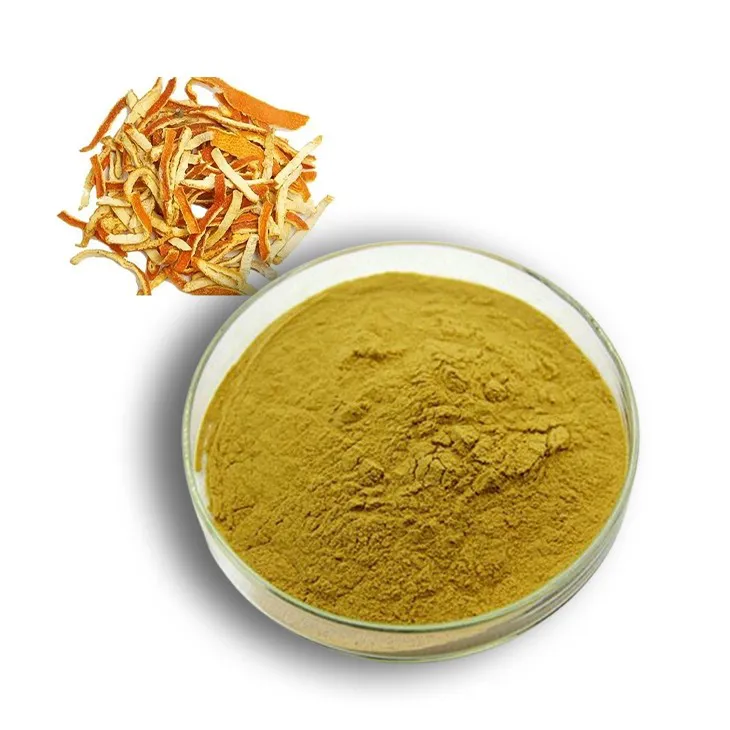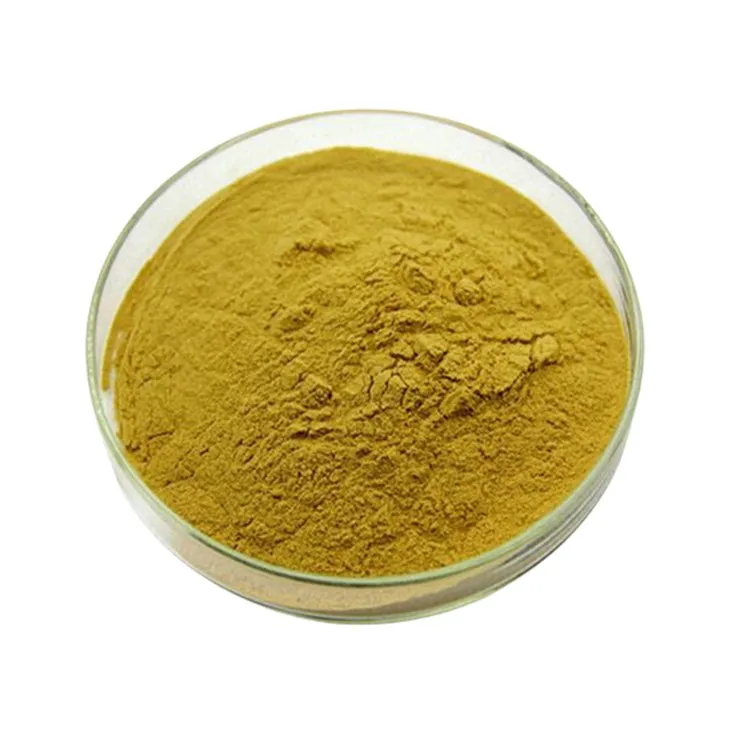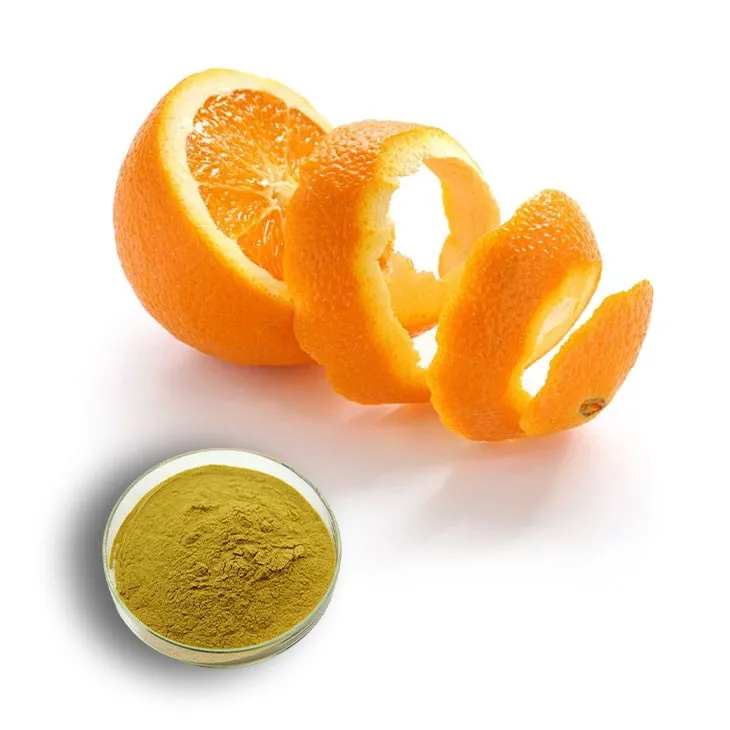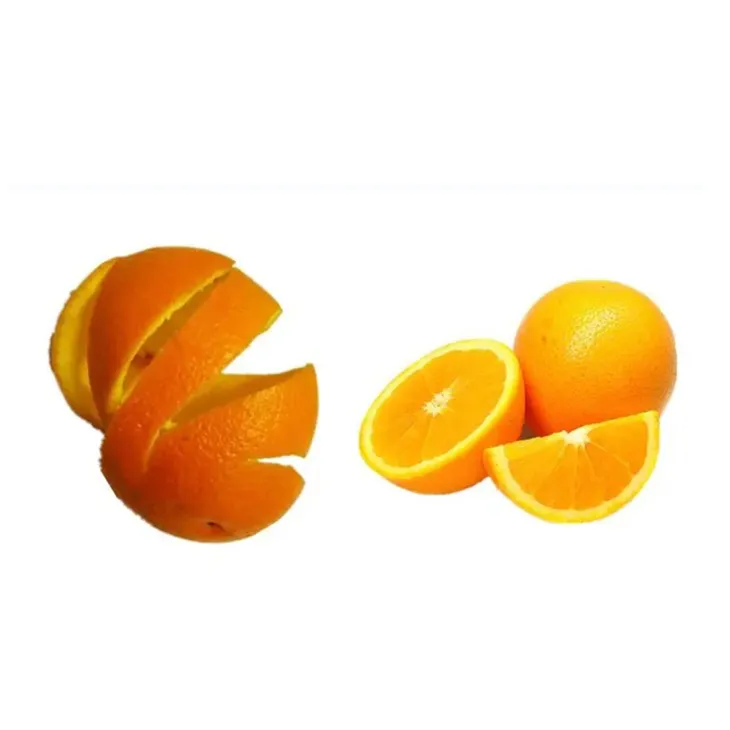- 0086-571-85302990
- sales@greenskybio.com
Does hesperidin increase testosterone?
2025-07-20

Hesperidin, a bioflavonoid primarily found in citrus fruits such as oranges, lemons, and grapefruits, has been recognized for its various health benefits, mainly in the context of cardiovascular health and the reduction of inflammation. Recently, Hesperidin has sparked interest regarding its potential influence on hormonal levels, particularly testosterone, which plays a critical role in many bodily functions from muscle development to mood regulation. This article will explore the scientific evidence on Hesperidin's effects on testosterone levels, discussing its mechanisms, benefits, and implications for health and wellness.
Understanding Hesperidin
Hesperidin is a type of flavonoid glycoside, essentially a compound that combines plant pigments with sugar molecules. Belonging to the broader class of bioflavonoids, hesperidin offers a range of health benefits attributed to its antioxidant and anti-inflammatory properties. It has been widely studied for its ability to improve blood vessel health, reduce inflammation, and enhance overall cardiovascular functioning.
One of the key ways hesperidin exerts its benefits is through protection against oxidative stress, which is implicated in various chronic diseases. By inhibiting oxidative stress, hesperidin helps safeguard tissues and support cellular function. Given its diverse health impacts, researchers have begun to examine whether hesperidin could also influence hormonal levels, specifically testosterone, which is essential for both men and women.

The Role of Testosterone
Testosterone is a steroid hormone primarily produced in the testes in men and the ovaries in women, although smaller amounts are synthesized in the adrenal glands. Testosterone is pivotal for numerous physiological processes, including:
1. Muscle and Bone Health: Testosterone contributes to muscle growth, strength, and bone density, promoting physical health and mobility.
2. Reproductive Function: In men, testosterone is crucial for sperm production and overall reproductive health. In women, it plays a role in ovarian health and libido.
3. Mood Regulation: Adequate testosterone levels help maintain stable mood and energy levels, influencing overall mental well-being.
4. Fat Distribution: Testosterone impacts metabolism and fat distribution, with implications for body composition and weight management.
Given these roles, maintaining optimal testosterone levels is vital for health and well-being, prompting interest in natural compounds that might support hormonal balance.

Potential Mechanisms of Hesperidin's Influence on Testosterone
While direct research on hesperidin's effects on testosterone remains limited, several mechanisms suggest its potential to impact hormonal levels:
1. Antioxidant Effects: By reducing oxidative stress, hesperidin may indirectly support testosterone production. Oxidative damage in the testes can impair hormone synthesis, and antioxidants like hesperidin could help mitigate this risk.
2. Anti-Inflammatory Properties: Inflammation can disrupt hormonal balance, and hesperidin's anti-inflammatory actions could promote a healthier environment for testosterone production.
3. Improving Circulatory Health: Testosterone synthesis requires optimal blood flow and nutrient delivery to the testes. Hesperidin's benefits for vascular health could enhance circulation, indirectly supporting hormone production.
4. Impact on Enzymatic Processes: Some studies suggest flavonoids may impact enzymes involved in testosterone synthesis and metabolism, although more research is needed to clarify hesperidin's specific role.

Scientific Evidence for Hesperidin's Effects on Testosterone
The direct impact of hesperidin on testosterone levels has not been extensively studied in human trials. However, several animal studies provide insight into its potential effects:
- A study on mice found that hesperidin supplementation led to increased testosterone levels and improved reproductive function. The proposed mechanism was hesperidin's ability to mitigate oxidative stress, thus preserving hormone synthesis.
- In another study focused on testicular health, hesperidin demonstrated protective effects against toxins that typically lower testosterone levels. This implies its capacity to maintain hormonal balance in adverse conditions.
These findings suggest that hesperidin could influence testosterone levels, at least in animal models, by promoting a healthy testicular environment and mitigating stressors that would otherwise inhibit hormone production.

Implications for Human Health
Although promising, hesperidin’s effects on testosterone require more focused research in human populations to ensure effectiveness and safety. Potential benefits may include:
1. Supporting Muscle Health: By potentially boosting testosterone, hesperidin could help enhance muscle development and strength for improved physical performance.
2. Reproductive Function: Men and women experiencing fertility challenges or hormonal imbalances might benefit from hesperidin as part of a holistic approach to hormonal health.
3. Mood and Energy: Improved testosterone levels can contribute to better mood stability and vitality, enhancing overall quality of life.
4. Metabolic Benefits: Optimizing testosterone can aid in better weight management and metabolic health, supporting broader health goals.
Incorporating Hesperidin into Lifestyle
Hesperidin is easy to incorporate into daily life through diet and supplements. Here's how:
1. Dietary Sources: Consuming citrus fruits such as oranges, lemons, and grapefruits naturally increases hesperidin intake. Consider including them in your breakfast or as snacks throughout the day.
2. Supplements: Hesperidin supplements are available for those who may not get enough through diet alone. Consult with a healthcare provider to determine appropriateness for your needs.
3. Balanced Diet: Combining hesperidin with other nutrients, such as healthy fats and proteins, may support a comprehensive approach to health and hormone balance.
Safety and Considerations
Hesperidin is generally considered safe when consumed in foods and supplements within recommended dosages. However, individuals with citrus allergies should exercise caution. Additionally, those on medication or with specific health conditions need to consult with a healthcare provider before starting supplementation to prevent potential interactions.
Conclusion
In conclusion, while hesperidin's direct effects on testosterone are not yet fully understood, initial studies suggest its potential for supporting hormonal health through mechanisms like oxidative stress reduction and improved circulation. This flavonoid, abundant in citrus fruits, presents a promising addition to diets aiming for enhanced physical and reproductive health. More research will elucidate hesperidin's role in testosterone regulation, guiding effective strategies for maximizing its benefits. As part of a balanced lifestyle, hesperidin may contribute to the maintenance of optimal hormonal levels, reinforcing overall well-being and vitality.
Green Sky Bio provides the best extracts and supplements. It is a century-old brand that is trustworthy! Welcome to email us to inquire about our products.
- ▶ Hesperidin
- ▶ Citrus Bioflavonoids
- ▶ Plant Extract
- ▶ lycopene
- ▶ Diosmin
- ▶ Grape seed extract
- ▶ Sea buckthorn Juice Powder
- ▶ Fruit Juice Powder
- ▶ Hops Extract
- ▶ Artichoke Extract
- ▶ Mushroom extract
- ▶ Astaxanthin
- ▶ Green Tea Extract
- ▶ Curcumin
- ▶ Horse Chestnut Extract
- ▶ Other Product
- ▶ Boswellia Serrata Extract
- ▶ Resveratrol
- ▶ Marigold Extract
- ▶ Grape Leaf Extract
- ▶ New Product
- ▶ Aminolevulinic acid
- ▶ Cranberry Extract
- ▶ Red Yeast Rice
- ▶ Red Wine Extract
-
Purple Sweet Potato Extract
2025-07-20
-
Citrus Aurantii Extract
2025-07-20
-
Marigold Extract
2025-07-20
-
Nettle leaf extract
2025-07-20
-
Dandelion Leaf Extract
2025-07-20
-
Thunder God Vine Extract
2025-07-20
-
Yohimbine Bark Extract
2025-07-20
-
Dan Shen Root Extract/Salvia Root Extract
2025-07-20
-
Carrageenan Extract Powder
2025-07-20
-
Black Garlic Extract
2025-07-20





















